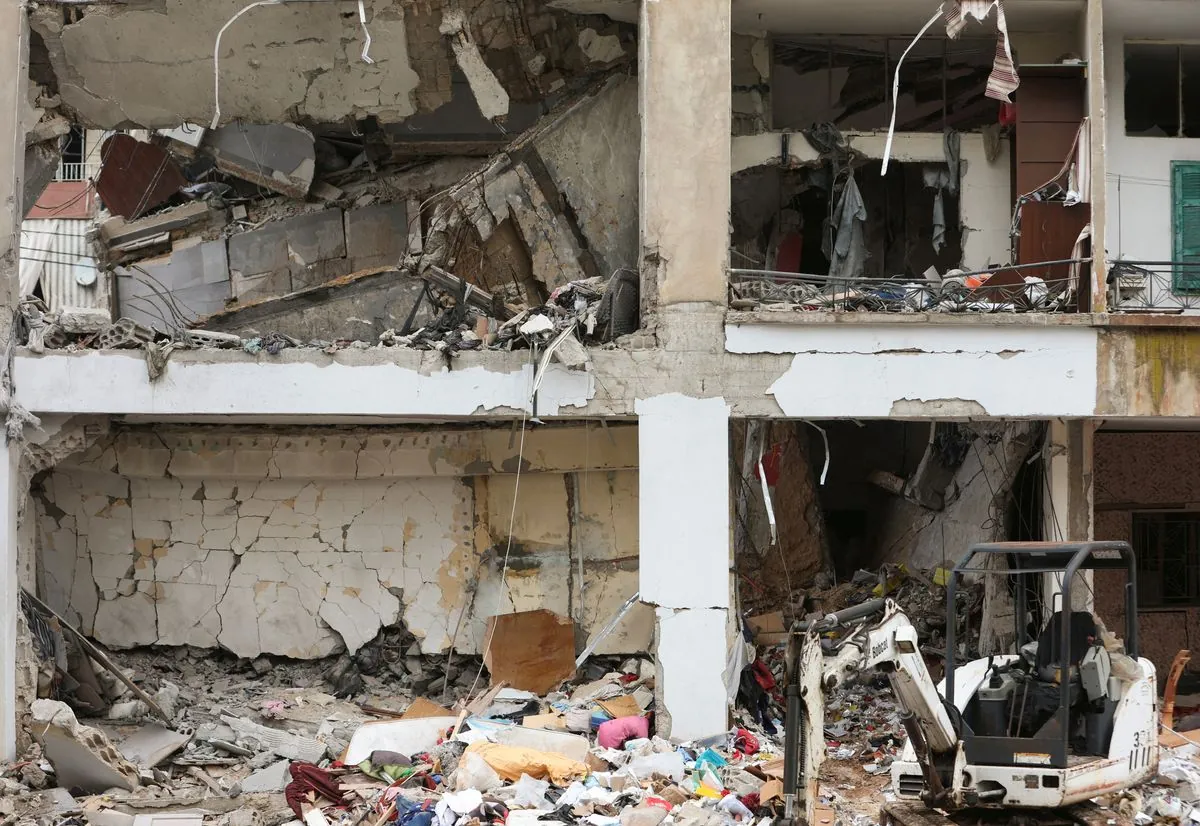In a significant escalation of regional tensions, an Israeli strike in southern Lebanon has resulted in the deaths of at least 10 Syrian nationals, according to Lebanon's Health Ministry. The incident, which occurred in Wadi al-Kfour, Nabatieh province, marks one of the most severe attacks since the commencement of hostilities between Hezbollah and Israeli forces approximately 10 months ago.
The strike, which targeted an area described as industrial and civilian, claimed the lives of a woman and her two children, with five others sustaining injuries. This event underscores the ongoing volatility in the region, which has been particularly tense since July 2024.
Avichay Adraee, an Israeli military spokesperson, stated that the operation targeted a Hezbollah weapons depot. However, local sources, including Mohammad Shoaib, who operates a business in the area, described the location as an industrial zone housing various factories and a dairy farm.
This recent attack is part of a series of exchanges that began on October 8, 2023, following a Hamas incursion into southern Israel. Since then, the conflict has resulted in over 500 casualties, predominantly Hezbollah fighters and other armed groups, but also including around 100 civilians. On the Israeli side, 22 soldiers and 24 civilians have lost their lives.
The ongoing hostilities have their roots in a complex history. Hezbollah, founded in 1982 during the Lebanese Civil War, has been a significant player in Lebanese politics and military affairs. The organization's military capabilities have grown substantially since its last major conflict with Israel in 2006, a 34-day war that ended in a stalemate.
Lebanon, already grappling with the world's largest per capita refugee population and a severe economic crisis since 2019, now faces additional challenges due to this conflict. The situation is further complicated by Lebanon's intricate power-sharing system based on religious communities and Hezbollah's significant political influence in the country.
International diplomatic efforts are underway to de-escalate the situation, with particular focus on achieving a ceasefire in Gaza. Hezbollah has stated that it will cease its attacks once such a ceasefire is implemented. However, recent events, including the killing of a top Hezbollah commander in southern Beirut and the death of Hamas political leader Ismail Haniyeh, have heightened tensions and prompted vows of retaliation.
As the conflict continues, tens of thousands of people have been displaced on both sides of the tense frontier, exacerbating the humanitarian situation in an already troubled region. The international community remains concerned about the potential for further escalation, given the historical context and the current geopolitical landscape.
"We will stop our attacks once a ceasefire is reached in the Gaza Strip."
The ongoing exchanges between Israel and Hezbollah highlight the fragile nature of peace in the region and the potential for localized conflicts to have wider implications. As diplomatic efforts continue, the international community watches closely, hoping for a resolution that can bring stability to this volatile area.
